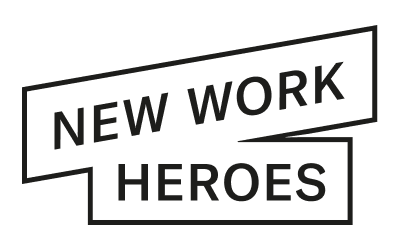Podcast Episode #66
Learn metamethod competence - from implementation intelligence to method agnosticism

Seeing through the method jungle - a plea for method agnosticism and metamethod competence
In the New Work cosmos, many people think the same way as they do about religion: for them, there is only one God - in other words, only THE one right method. But what happens when it reaches its limits?
We are talking about frameworks such as Scrum or Design Thinking. They describe processes and approaches that are designed to make collaboration more efficient. The followers of these frameworks sometimes act very pedantically, rigidly following the chosen methods and feelingly punishing all others who turn away from the consecrated path. The question is: Who says that there can be only one Holy Scripture in everyday work?
Agnosticism: When "I can't judge" is the right answer
As the previous comparison already suggests, the term agnosticism comes from the religious context. It emphasizes the limitations of human knowledge and understanding - especially with regard to the existence or inexistence of a higher authority. Unlike atheism, agnostics do not deny the existence of a God - they are aware that they cannot make a clear statement about it. This philosophy enables an openness away from the often occurring narrowness of religion.
This mindset can also be applied to the world of work. In the IT industry, for example, one speaks of platform-agnostic software when programs function independently of the operating system - in other words: the underlying layer is not important for the use of a tool. The result? The software runs on all devices and creates the maximum benefit for the user.
How does that translate to the world of work? Method agnosticism explained
Here we revisit the thought experiment in the context of the New Work scene. Because even the glorified methods such as Scrum and Design Thinking are not equally suitable for every company or the teams operating within it. Therefore, throw the whole method overboard? Unnecessary.
Credit goes to the conversations with the colleagues from Berlin based consultancy The Dive. I remember well a discussion during a community workshop about being agnostic with methods. Their Loop approach pays credit to these ideas. But as a preachers son, I'm well equipped on thoughts about belief; even a method that says it is not a new method, is a method. It is much more important that the tools used contribute to the achievement of objectives and provide a solution to an acute problem.
Due to my experience in various projects and with a wide variety of methods, I have acquired a certain level of method agnosticism over the years. This means that I use tools from toolboxes of various methods in everyday life - it is no longer so important to me which superordinate framework they belong to. In this way, design thinking principles and ideation can also be used in an IT project within a corporate group that otherwise works with agile methods and primarily Scrum.
From method competence and implementation intelligence
But be careful! Half-knowledge is not a good advisor in the application of methods like Scrum. If they are used incorrectly, the whole project is doomed to failure in advance. However, if this dangerous half-knowledge meets an excellent implementation intelligence, i.e. the intuitive understanding of how abstract theories can be applied to concrete situations, the project has a better chance of success. Implementation intelligence is far superior to religious zeal and the slavish recitation of examples and cases. And the more methods I get to know, the better I succeed in implementing new ones.
That is why I always recommend interested managers to test many methods, to try them out and to create opportunities in their everyday work to transfer the new approaches into practice. Only through trial and error can important learning moments arise for all involved.
Now, if you are willing to learn, all you would have to do is choose a method and off you go - right? Far from it. This is precisely the pain point of those affected. Around every corner lurks a new hype, the next buzzword that everyone wants to implement immediately. I like to refer to this as the "Shiny Object Syndrome," the moment when something sparkly new appears on the scene that catches everyone's attention for a moment. Often, they hide rather dubious offers that do not have much in common with clever methods. And on top of that, they devour vast sums of money for seminars and licensing. How do you keep an overview in the jungle of offers?
I also count this as methodological competence - being able to distinguish when it is a new trend and when it is a serious innovation. It is easy to be selective if you consider the following:
You can recognize good methods by the critical questions they ask about applicability.
Why metamethod competence is needed
By metamethod competence I mean a kind of "view from above", since the question of the concrete problem in the team or company is central. Metamethod expertise refers to the accumulated knowledge of myriad tools from various frameworks and their implementation. Coupled with the open, cross-method approach of method agnosticism, a targeted selection of individual building blocks can now be made. This creates an individual toolbox of tools - perfectly tailored to the needs of a team. Only then is it possible to define a concrete roadmap that will pay off in terms of solving the individual situation.
Learn to play the transformation tools and find custom-fit solutions for your team!
